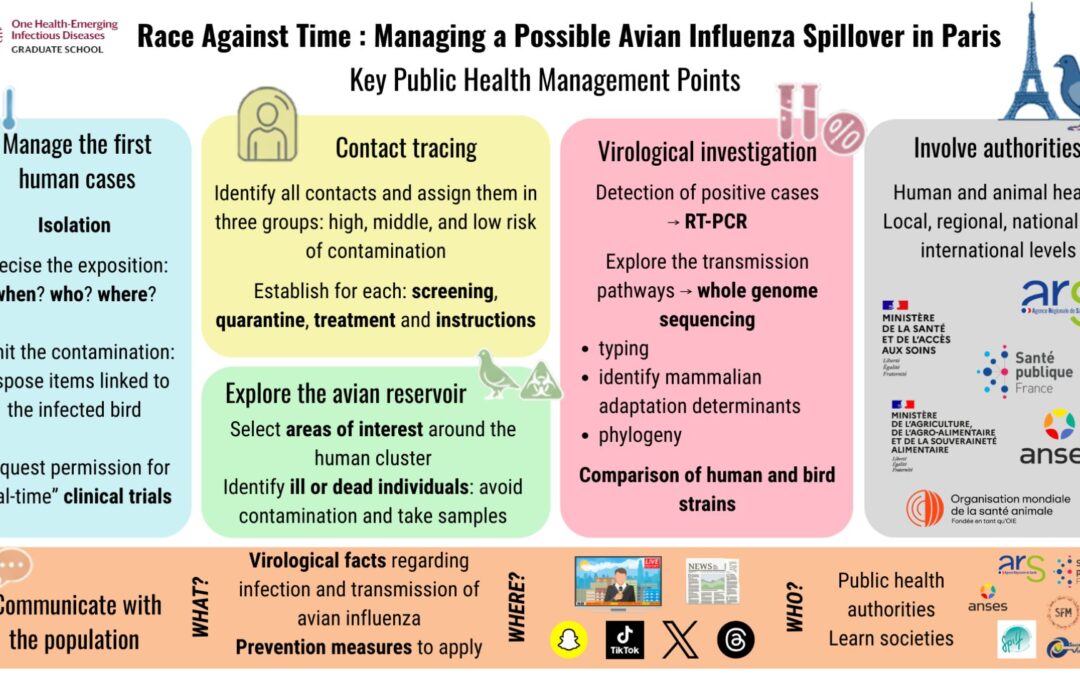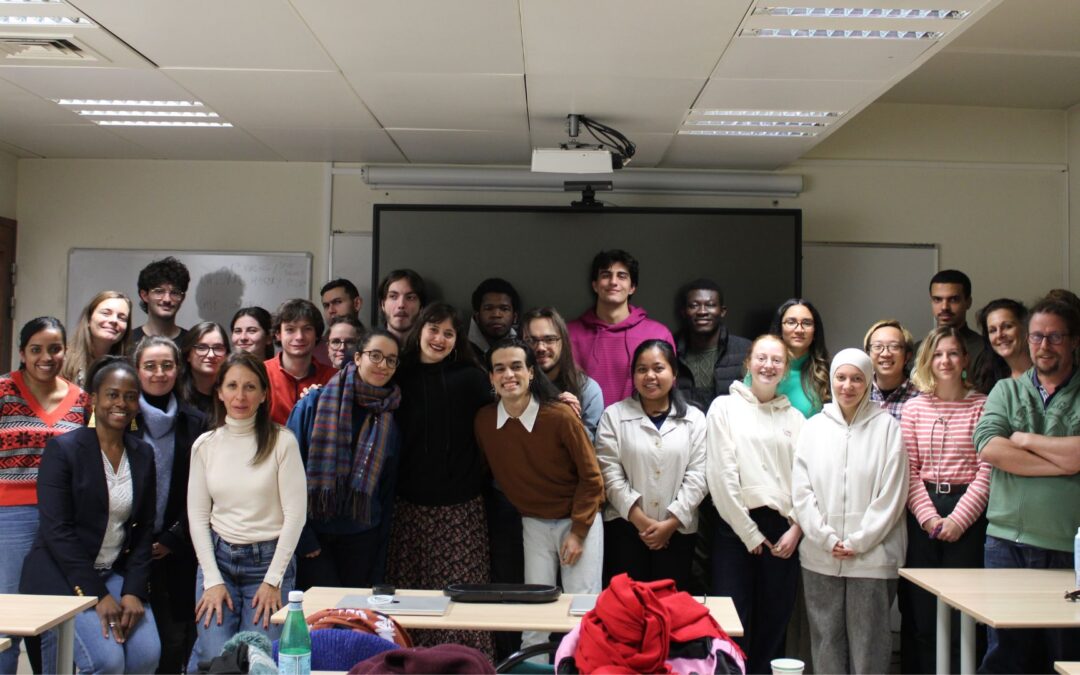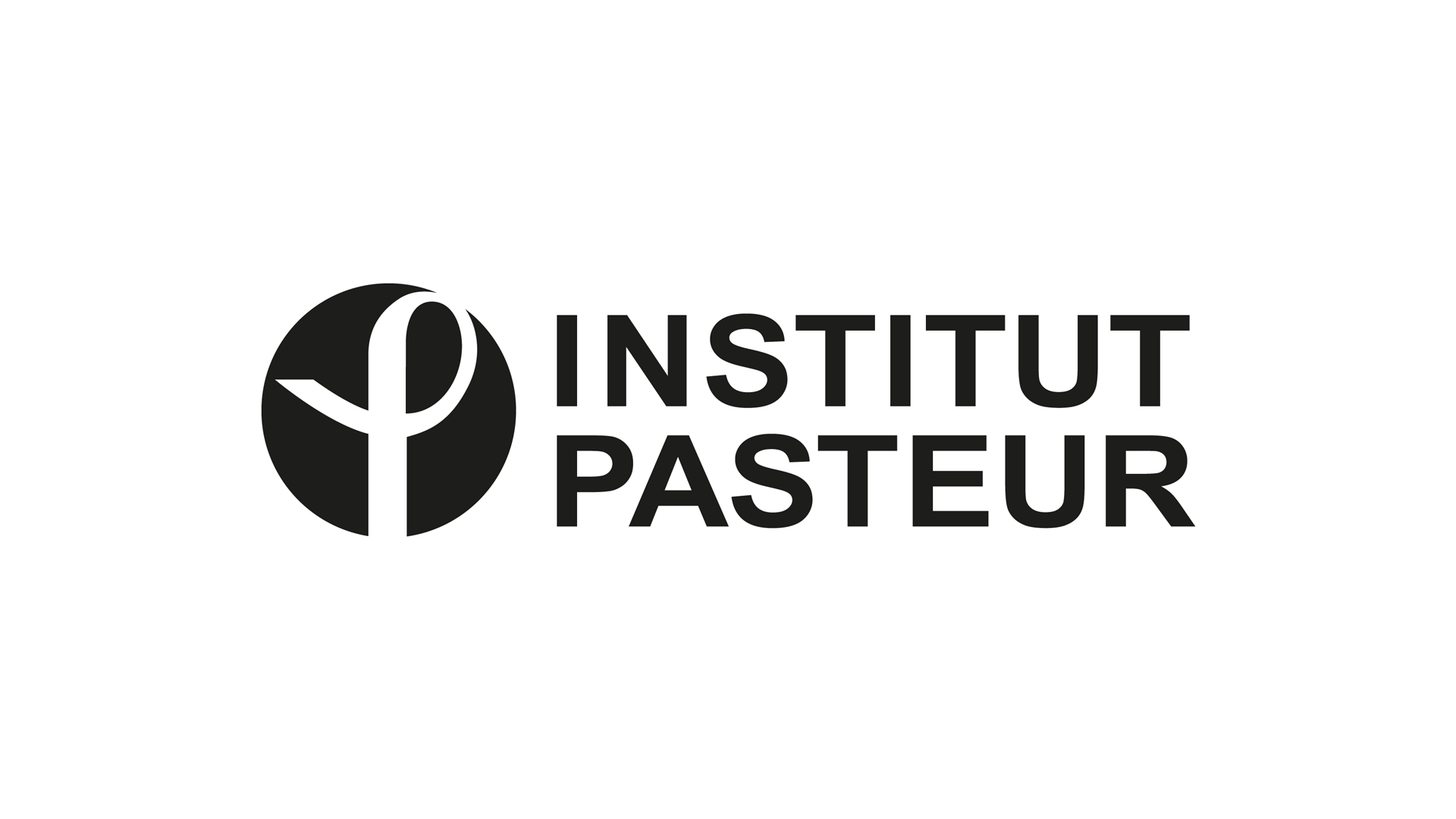Research labs within Université Paris Cité
List
Functional and Adaptive Biology
BFA – UMRS 8251
Today, it is common to use computational methods to discover new drugs. However, in recent years, new challenges have emerged. It is now necessary to take into account the multiple interactions between a drug and its targets, as well as to seek alternatives to traditional drugs. The team focuses on two main axes: Profiling, which thoroughly studies therapeutic proteins and predicts how molecules interact with them, and Peptides, which develop new peptides to target protein interactions. They also have a platform called RPBS that aids in these research endeavors.
Clinical Investigation Center in Vaccinology
CIC – Cochin-Pasteur
Institut Pasteur
The Vaccine Trials Center of Cochin Hospital and the Institut Pasteur have established the Cochin-Pasteur Clinical Investigation Center in Vaccinology, in collaboration with Inserm. This specialised center evaluates new vaccines, addressing a global public health need. It conducts clinical trials on new vaccines, with financial support from Inserm and DHOS. The first clinical trial evaluates a vaccine against Shigella dysenteriae, launched in June 2005.
Environmental Toxicity Therapeutic Targets Cellular Signaling & Biomarkers
Team 7: Cell death and Host Pathogen Interaction
T3S – UMRS 1124
Infectious diseases are one of the leading causes of death worldwide, especially in developing countries. The team focuses on understanding cell death during host-pathogen interactions. It investigates how cells die and how microbes persist even after treatment. The goal is to find new drugs to enhance existing therapies against HIV and other infections. The team also aims to understand how parasites like Leishmania affect cells and how this influences the immune response. Lastly, it explores how viral infections trigger the release of certain molecules in the body, which may prolong the illness.
Infection, Antimicrobials, Modeling, Evolution
IAME – UMR 1137
Laboratoire Européen Associé
LEA – INSERM “Emerging Antibiotic Resistance in Gram-negative Bacteria”
EMergATB-Resist – IAME – UMR 1137
The EMergATB-Resist research project, led by Patrice NORDMANN at the University of Fribourg and in collaboration with Erick DENAMUR at IAME, aims to rapidly detect antibiotic resistance in multi-drug resistant (MDR) Gram-negative bacteria, understand the genetic mechanisms of resistance, develop rapid diagnostic tests, and create new treatments against carbapenemase-producing bacteria.
Institut de recherche Saint-Louis
Genomes and Cell Biology of Diseases team
Inserm U944 – CNRS UMR 7212
Emerging Virus Biology team
UMRS 944
The team investigates how viruses affect human cells and how this influences our susceptibility to viral diseases. It focuses on RNA viruses, such as those transmitted by mosquitoes or respiratory viruses, which can cause severe illnesses. The goal is to understand how these viruses manipulate cells to spread and evade our immune system. This research could aid in developing new antiviral treatments. The team employs various advanced techniques such as proteomics and genomic analysis to explore these mechanisms.
Human Immunology, Pathophysiology, Immunotherapy team
HIPI – U976
Established in 2019, affiliated with Inserm and Université Paris Cité. Under the direction of Jean-Christophe BORIES, the unit comprises over 200 members working on immuno-oncology, stem cells and immunity, as well as immuno-inflammation. In addition to these areas, HIPI explores cross-cutting projects to develop combination therapies. Its goal is to identify new immunological mechanisms to better understand and treat immune diseases. In collaboration with hospital clinical services, HIPI also promotes innovation and the training of young researchers and physicians, while advocating for scientific integrity.
À lire aussi
![[Call for applications] 3-year doctoral contracts to French or international students](https://one-health-eid.u-paris.fr/wp-content/uploads/sites/26/2026/02/Appel_021-1080x675.jpg)
[Call for applications] 3-year doctoral contracts to French or international students
The 1H-EID Graduate School awards 3-year doctoral contracts to French or international students. The call will be open from March 20th, 2026 to April 17th, 2026 at 1:00 PM CET CET, for a contract commencement on September 1st, 2026. Please note that this call is...

Case study: the hidden journey of a disease outbreak
Imagine you are having lunch with family or out with friends when suddenly a news alert appears on TV or social media: new cases of influenza are spreading across your country. Have you ever wondered what happens before this information reaches you? This is the...

A Look Back at the 1H-EID Graduate School Webinar Series
The Graduate School One Health Emerging Infectious Diseases (1H-EID) has successfully launched two exciting webinar series that bring together researchers, practitioners, and students around critical health issues and pandemic preparedness. One Health Research in...

From The Field Week: A Unique Learning Experience
We're thrilled to share highlights from this year's "From the Field" teaching unit, a distinctive and dynamic component of the Graduate School One Health Emerging Infectious Diseases (1H-EID) program, expertly organized by Solen Kernéis, Loïc Epelboin, and Nathan...

















